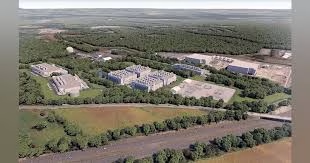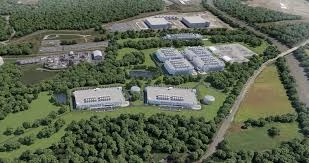Japan’s Mitsubishi Estate has announced a major expansion of its U.S. presence through its subsidiary TA Realty, planning the development of 14 data center campuses across the country. The build‑out will provide a combined 2.8 GW of power capacity and represents an investment of up to $15 billion, marking one of the largest private U.S. digital infrastructure projects announced this year.
Factsheet
Developer: Mitsubishi Estate (via TA Realty)
Number of campuses: 14 planned
Total power capacity: 2.8 GW
Investment: Up to US$15 billion; Mitsubishi Estate contributing US$1.1 billion equity
Timeline: Full build‑out expected by 2030
Confirmed locations:
Virginia (Leesburg / Loudoun County)
Georgia (Atlanta region)
Illinois (Chicago region)
Notable project: 430 MW build‑to‑suit campus in Loudoun County, Virginia, operational target 2027. This signals a major win for Virginia in the race between US states to attract data center investment.
Development model: Combination of build‑to‑lease and speculative campuses; potential sale to institutional investors post‑construction
Strategic significance
Mitsubishi Estate, traditionally a real‑estate developer, is expanding into the hyperscale data center market in the U.S., a move driven by surging demand for cloud computing, artificial intelligence, and large-scale IT infrastructure. The project positions the company to serve the growing market for hyperscale compute and enterprise cloud services while leveraging its real‑estate development expertise across multiple states.
Virginia, Georgia, and Illinois were chosen for their robust power infrastructure, fiber connectivity, and strategic proximity to major cloud customers, allowing Mitsubishi Estate to build campuses that can handle massive IT loads while remaining cost-efficient and logistically feasible.
Virginia, in particular, has long been a hub for hyperscale data centers, thanks to its abundant and reliable power supply, dense fiber-optic networks, and supportive local policies. The region’s established ecosystem of cloud providers and technology companies also creates synergies for new campuses, making Northern Virginia a prime location for high-capacity, cost-efficient data center development. Even major tech giants have maintained a strong presence in Virginia like Google LLC who recent, announced an additional US$9 billion investment in the state by 2026, which includes a new data‑center campus in Chesterfield County and expansions in Loudoun and Prince William Counties.
Construction and technical focus
Power & electrical infrastructure: 2.8 GW total load requires major substations, high-voltage feeders, and grid interconnects. Each campus will be engineered for high reliability and redundancy.
Mechanical & cooling systems: Hyperscale workloads generate substantial heat, requiring advanced cooling systems, including high-efficiency air-side or liquid cooling, and large-scale HVAC and generator installations.
Civil works: Includes grading, large building shells, floor construction, utility trenching, fiber connectivity, and road access for multiple states.
Phased build-out: Completion by 2030 introduces risks such as material cost inflation, labor availability, permitting delays, and evolving technological standards.

Financial & investment framework
Mitsubishi Estate will contribute approximately US$1.1 billion in equity, with the remainder funded by institutional investors. The model combines build-to-lease arrangements with speculative campuses, allowing for potential monetization through asset sales once fully operational. This financing approach underscores both the scale and confidence behind the project while distributing risk across investors.
Regional & economic impact
The planned data center campuses will significantly impact the regions that host them. During construction, the projects will create jobs in site preparation, civil works, and mechanical and electrical installation. Once completed, the campuses will employ staff in facility management and IT operations. Local utilities will face higher demand and may need to upgrade power and water systems. Municipalities must plan for the large campus footprints.
Beyond infrastructure, the developments will boost regional economies through tax revenue, improved services, and stronger competitiveness for attracting hyperscale technology investments. Large land parcels and complex zoning rules require careful coordination with local authorities to balance development and community needs.
Timeline & next steps
Immediate focus: Loudoun County, Virginia 430 MW build-to-suit campus, expected operational by 2027.
Phased expansion: Additional campus locations, tenant agreements, and utility contracts will be finalized as part of the broader 14-campus roll-out.
Monitoring points: Contractor appointments, construction milestones, power supply agreements, and tenant commitments will shape progress and execution risk.
This project represents a major U.S. infrastructure commitment in the digital‑economy era. With 14 campuses, 2.8 GW of power capacity, and up to US$15 billion in investment, Mitsubishi Estate and TA Realty are set to reshape regional construction landscapes, digital infrastructure, and hyperscale compute capacity over the coming decade.

Leave a Reply